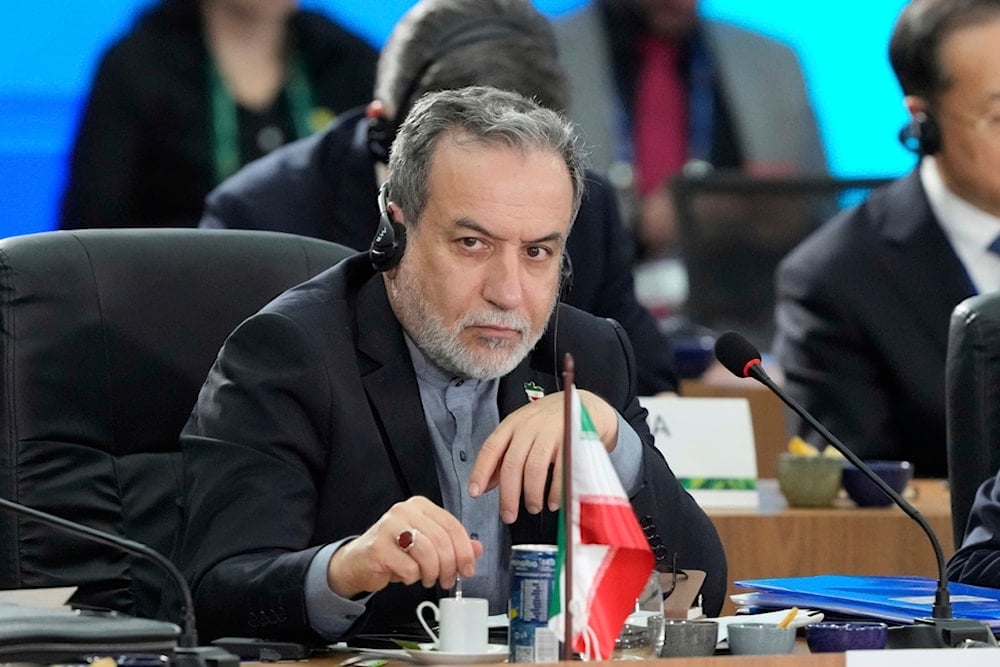Iran's Araghchi heads to Vienna for talks with UK, France, Germany
Iranian Foreign Minister Abbas Araghchi traveled to Vienna for talks with envoys from the UK, France, and Germany as part of ongoing efforts to address the future of the 2015 nuclear agreement.
-

Iranian Foreign Minister Abbas Araghchi attends the 17th annual BRICS summit in Rio de Janeiro, Sunday, July 6, 2025 (AP Photo/Eraldo Peres)
Iranian Foreign Minister Abbas Araghchi traveled to Vienna on Sunday for consultations with envoys from the United Kingdom, France, and Germany, according to Nour News.
The trip follows the September 19 decision by the UN Security Council to reject a draft resolution that would have prolonged sanctions relief tied to the 2015 nuclear accord.
That vote came after the three European powers initiated the "snapback" mechanism on August 28, opening a 30-day window to reach a diplomatic solution before the possible reinstatement of UN sanctions.
Araghchi's meetings are expected to focus on next steps as Tehran and its European counterparts navigate the uncertainty surrounding the future of the nuclear agreement.
Discussions will likely center on whether Iran will expand cooperation with the International Atomic Energy Agency (IAEA), including granting broader access to nuclear sites and clarifying its stockpile of enriched uranium.
Iran Ends Oversight
The talks, however, are overshadowed by Tehran's latest move: on Saturday, Iran's Supreme National Security Council announced it would suspend cooperation with the IAEA following the UN vote.
The council described the European decision to reimpose sanctions as "politically motivated," arguing that Western governments had undermined Iran's goodwill for dialogue.
Iranian lawmakers have warned that any attempt to exploit pressure tactics will be met with a "harsher and more decisive" response than before.
European diplomats have signaled that Iran has yet to take the necessary steps to avert the return of sanctions, while Iranian officials insist the country can withstand renewed pressure.
A recent arrangement between Iran and the IAEA had given inspectors limited access to certain facilities damaged in earlier strikes, but full oversight was never restored.
With the snapback deadline at the end of September and Tehran now formally cutting ties with the UN nuclear watchdog, the Vienna talks are shaping up as a critical juncture, potentially the last chance to avoid a complete breakdown of the 2015 accord.
Read more: Iran's response to 'maximum pressure' will be harsher than ever: Azizi

 2 Min Read
2 Min Read








